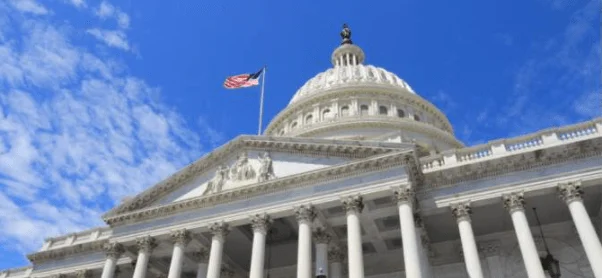Former FDIC regulator Jason Brett claims that this year, US lawmakers have shifted their attention away from private stablecoins and toward regulating decentralised digital assets.

The US Congress looks to be pressing for more legislative clarification on crypto assets, with 18 measures relating to blockchain and cryptocurrency submitted so far in 2021.
According to an analysis published on August 22 by Jason Brett, a former Federal Deposit Insurance Corporation regulator, the current 117th Congress has deviated from its predecessor by focusing on regulating decentralised assets rather than private stablecoins like Facebook’s Diem project (formerly known as Libra).
The Digital Asset Market Structure and Investor Protection Act was introduced in July by Congress in an attempt to create separate statutory definitions for digital assets and digital asset securities.
Although the law has yet to pass through Congress, it would require the Securities and Exchange Commission (SEC) to supervise digital asset securities, while the Commodity Futures Trading Commission (CFTC) would be in charge of regulating digital assets.
The Eliminate Barriers To Innovation Act, according to Brett, has made the most progress among Congress’ digital asset bills since it was introduced in March. The Act proposes to create a joint working group that will allow the SEC and the CFTC to work together to regulate the blockchain and crypto industries.
According to the article, the law has already cleared both Congress and the House of Representatives and is now seeking Senate approval.
However, the industry has not embraced all of Congress’ digital asset bills, with last-minute amendments to the bipartisan infrastructure deal in July including a broad definition of digital asset “brokers” that threatens to impose strict counterparty reporting requirements on network validators and software developers.
Zachary Kelman, Cointelegraph’s general counsel, described the ambiguous language in the infrastructure bill as a political shell game in which lawmakers aim to raise taxes without specifying how they will be collected.
The bill will now be moved to the House of Representatives, where it will most likely be debated later this year.
With three bills introduced this year, Congressman Tom Emmer has been one of the most active in the digital asset field.
Emmer’s proposals included the Blockchain Regulatory Certainty Act, which would exempt blockchain service providers with no control over tokens from money transmitter licensure and registration.
He also introduced the Security Clarity Act in July, which aims to reduce regulatory costs for blockchain-based technology, and the Safe Harbor For Taxpayers With Forked Assets Act in May.
